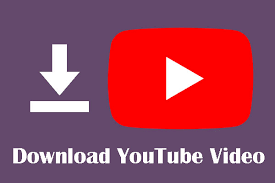Title: The Controversial Practice of YouTube MP3 Downloading
Introduction:
YouTube, being a vast repository of audiovisual content, has spurred a proliferation of tools and services allowing users to extract audio in MP3 format from YouTube videos. While the appeal of creating a personal music library is understandable, the practice of YouTube MP3 downloading raises legal, ethical, and copyright concerns. In this discussion, we will explore the implications of YouTube MP3 downloading, touching upon the legal framework, potential consequences, and alternative methods for acquiring music.
Legal Implications:
From a legal perspective, YouTube MP3 download stands on shaky ground. YouTube’s terms of service explicitly prohibit the downloading of content without proper authorization. By extracting audio from videos and converting it to MP3 format, users may be infringing upon copyright laws, as they are reproducing and distributing copyrighted material without permission. This places both users and the platforms providing such services at risk of legal action.
Copyright Concerns:
One of the primary concerns surrounding YouTube MP3 downloading is the violation of copyright held by the content creators. Musicians, record labels, and other copyright holders invest time, effort, and resources into producing music, and unauthorized downloads undermine their ability to control the distribution of their work. While some may argue that the availability of music on YouTube implies a level of accessibility, it doesn’t grant users the right to download and distribute the content without proper licensing.
Ethical Considerations:
Beyond legal considerations, the ethics of YouTube MP3 downloading come into play. Musicians and creators earn revenue through various channels, including streaming platforms, digital sales, and live performances. Downloading music for free without compensating the creators deprives them of potential income. Ethical users may choose to support artists by purchasing music through legitimate channels or subscribing to streaming services that compensate creators based on the number of plays.
Alternative Legal Methods:
For users seeking to build a music collection legally, there are numerous alternatives available. Subscription-based music streaming services like Spotify, Apple Music, and Amazon Music offer vast libraries of songs for a monthly fee. These services provide a legal and ethical way for users to access and enjoy music while ensuring that artists and copyright holders receive fair compensation for their work.
Creative Commons and Public Domain:
Another avenue for legally obtaining music is through Creative Commons-licensed or public domain content. Some artists choose to release their work under Creative Commons licenses, allowing users to download and share the music freely, provided they adhere to the license terms. Additionally, music in the public domain is not subject to copyright restrictions, and users can download and use it without legal concerns.
Educational Use and Fair Use:
In certain cases, YouTube MP3 downloading may be justified under the principles of fair use, particularly for educational purposes or commentary. However, users should exercise caution and ensure that their use falls within the legal parameters of fair use, as this is a nuanced and context-dependent aspect of copyright law.
Conclusion:
While the temptation to build a personal music library through YouTube MP3 downloading may be strong, users must consider the legal and ethical implications of such actions. Supporting artists and respecting copyright laws are crucial for maintaining a vibrant and sustainable music industry. By exploring legal alternatives and embracing ethical practices, users can enjoy their favorite music while contributing to the continued creation and production of high-quality content.


